Profiles: Palestinian unity cabinet
The new coalition has members from Hamas, Fatah and other parliamentary blocs.

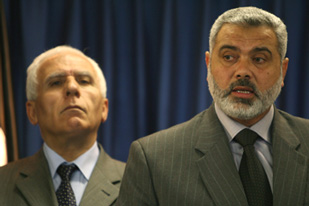 |
| Azzam al-Ahmad, left, would be deputy PM and Haniya would continue as PM [AFP] |
Ismail Haniya would continue to be the prime minister in the new Palestinian government.
The following is a tentative list of would-be ministers in Haniya’s new unity cabinet:
Azzam al-Ahmad – deputy prime minister
Born in Jenin in 1947, al-Ahmad headed the Fatah parliamentary block and is a long-time foe of Hamas. A former Palestinian minister, he was the PLO ambassador to Iraq from 1979-94.
A Baghdad university graudate in economics, he has been a Fatah-RC member from 1989.
He has served as a minister several times in previous Palestinian governments since 1996.
Hani Talab al-Qawasami – minister of interior
The most difficult cabinet post to fill, it took Hamas and Fatah weeks to settle on a candidate.
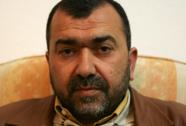 |
| Hani Talab al-Qawasami [AFP] |
Officials described al-Qawasami as an academic with no known political affiliation and little experience on security matters.
The interior minister technically oversees the major Palestinian security services, but in practice, most of the forces answer to Mahmoud Abbas’s Fatah faction while the Executive Force answers to Hamas.
Al-Qawasmi is currently a director in the ministry of religious affairs.
The current Hamas-led government appointed him as the director of administrative affairs in the ministry of interior in Gaza but the decision was not endorsed by Abbas, the president.
Al-Qawasmi is originally from the West Bank city of Hebron and is currently living in the Gaza Strip. Born in 1958, he is married and has 6 daughters.
Salam Fayad – finance minister
From the Third Way Party, his nomination has reportedly been approved both by Hamas and Fatah.
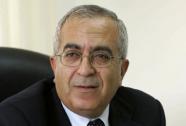 |
| Salam Fayad [AFP] |
Born in 1952 near Tulkarm, Fayad gained BSc in Engineering, an MA in accounting and PhD in economics from the University of Texas in the US.
He worked as a university economist before moving to work at the World Bank HQ in Washington from 1987-95.
He was the resident representative of the International Monetary Fund in Palestine until 2001 and was based in Jerusalem.
Regarded as a liberal, he is respected by the international community and recently delivered a speech at a Israeli conference in Herzilya.
He served as finance minister under the Fatah controlled government from 2002-05 and initiated major reforms of the financial system that won international praise and worked hard to curb official corruption.
He resigned in 2005 to run as the founder of the Third Way Party in the Palestinian parliamentary election; the party won two seats.
Ziyad Abu Amr – foreign minister
He was Fatah’s choice for the post of foreign minister, though he was backed by Hamas in parliamentary elections last year.
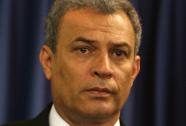 |
| Ziyad Abu Amr [AFP] |
A former culture minister, he was born in Gaza City in 1950.
Abu Amr has been teaching political science at Birzeit University, Ramallah, West Bank since 1985 and has published several books and papers, the most internationally known is Islamic Fundamentalism in the West Bank and Gaza: Muslim Brotherhood and Islamic Jihad.
In 1996, he was elected to the Palestinian Legislative Council as an independent canditate to represent Gaza City.
He is the chairman of the Palestine legislative council’s political committee and is member of an independent party.
He replaces Mahmud al-Zahar, a hardliner and one of Hamas’s senior officials who had difficult relations with Fatah. He is married and has four children.
Sameer Abu Aicheh – minister of planning
A Hamas nominee, he reportedly gets to keep the planning portfolio that he held in the previous cabinet.
Aicheh was also in charge of finance as a deputy minister. Born in Nablus in 1960, the US-educated Aicheh is a visiting lecturer at several American and European universities.
Mohammad Barghouti – minister of local government
Served as abour minister in the previous government, he has been chosen by Hamas. Born in Ramallah in 1968, he studied computer science and mathematics.
Currently a student of Advanced Studies of Business Administration at Najah University. He has been arrested six times and spent more than five years in Israeli jails.
Nassereddine Shaer – minister of education and higher education
The deputy prime minister and minister of education and higher education in the previous cabinet, he is a Hamas nominee.
Born in 1961, he is a prominent academician in the West Bank. Was a lecturer in Najah University before becoming Dean of the Sharia Faculty.
Bassam El Salehi – minister of culture
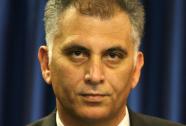 |
| Bassam El Salehi [AFP] |
Belongs to the Palestinian People’s Party and was nominated by them as part of the Mecca agreement as part of the agreement to include other parties in the cabinet.
A prominent student activist, he spent three years in Israeli jails during the first Intifada. The PPP is a leftist secular party which is expected to provide a more liberal and secular view on cultural affairs.
Dr Mustafa Barghouti – minister of information
 |
| Mustafa Barghouti [AFP] |
Chosen both by Hamas and Fatah, he was the chief mediator between the rival Palestinian groups during the recent crisis.
Barghouti was born Jerusalem and is the founder and head of the influential medical relief committees and an advocate of non-violent resistance.
He is an internationally known politician and commentator and speaks Russian, English and Arabic. He is secular and a democracy activist who contested the presidential election in 2005, finishing a distant second to Mahmoud Abbas.
Salah Zaidan – minister of social development
From the Democratic Front for the Liberation of Palestine (DFLP) and approved by both Hamas and Fatah.
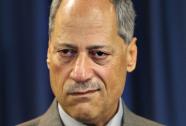 |
| Salah Zaidan [AFP] |
Born in 1947, he was a former fighter in Lebanon and was the leader of the resistance during the clashes with the Syrians when they attacked Tel Al Za’atar in Lebanon.
He was also field commander during the War of the Camps in 1985 in Lebanon.
Israel did not permit him to go back to Palestine until 1996, and since then he has been the head of the DFLP organisation in Gaza Strip. DFLP is a leftist organisation that was established in 1968 to liberate Palestine.
Youssef al-Jureid – minister of labour: Chosen by Hamas.
Fares Abu Amr – minister of economy: Chosen by Hamas.
Youssef Abu Menssy – minister of telecommunications: Chosen by Hamas.
Naiim al-Ghalban – minister of youth and sports: Chosen by Hamas.
Abdul Qader Idriss – minister of endowments (Waqf): Chosen by Hamas.
Kholoud Deabis – minister of tourism: Independent.
Radwan Al Akhras – minister of health: Chosen by Fatah.
Saadi Al Krunz – minister of transportation: Chosen by Fatah.
Sulaiman Abu Saneena – minister of prisoners: Chosen by Fatah.
Sameeh Al Abed – minister of public works
Dr. Ali Al Sartawi – minister of justice: Chosen by Hamas.
Amal Siyam – minister of women’s affairs : Chosen by Hamas.
Wasfi Kubaha – state minister: Chosen by Hamas.
Mohammed Al Agha – minister of agriculture: Chosen by Hamas.